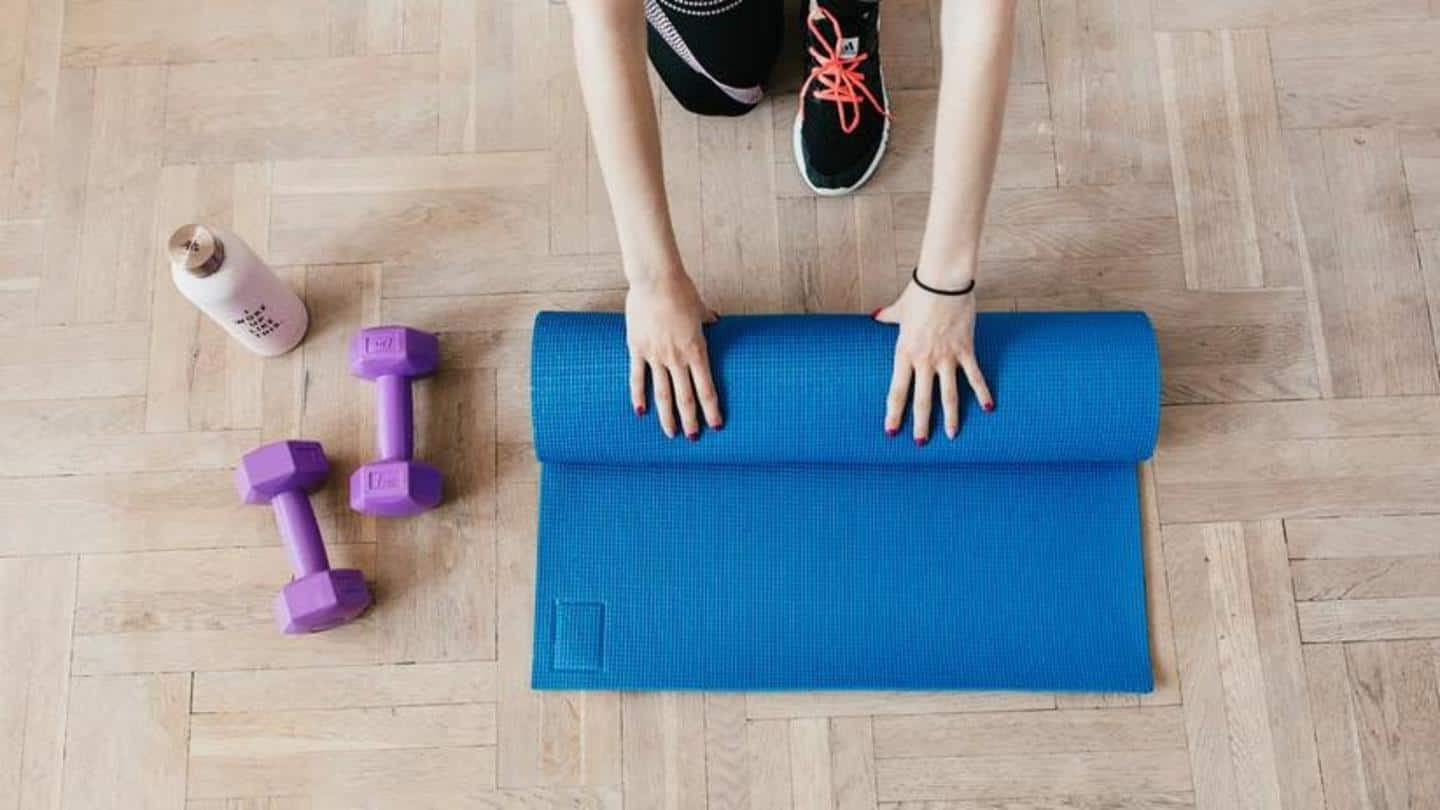
What is Pilates? Here's everything you need to know
What's the story
Pilates is a physical fitness system developed in the early 20th century by Joseph Pilates, a German physical trainer.
It is more common among celebrities and is practiced worldwide. Pilates is for everyone and can be done at any age.
It is widely popular as a cross-training workout and is also highly recommended by healthcare experts for overall wellness.
Here's more on Pilates.
Context
Why does it matter?
Pilates is a whole-body workout that helps improve daily activities and lifestyle with exercises that are usually low-impact.
Though the focus is more on developing core strength, it is not the only aim here.
This is because it is believed core strength is further used to improve the functions and sustainable movement patterns throughout your body as it aligns the body's overall structure.
Posture
It increases your core strength and betters your posture
Pilates regulates core strength and provides support to your joints. Furthermore, good core strength is key in reducing back and hip pain as well as pelvic floor dysfunction.
Pilates also focuses on body alignment and helps maintain a balance of all the opposing muscles.
Further, this regime improves your posture, too, and supports the organs to protect and stabilize your body, especially your back.
Injuries
It is helpful in keeping you away from injuries
Extremely weak or strong muscles can make you vulnerable to several injuries.
By helping in developing dynamic strength, the practice of Pilates also aids in stabilizing the joints and decreases the risk of injuries.
This system balances the muscles so that they are neither too tight nor too loose.
Experts have said that it is also helpful in preventing injuries caused by sports.
Energy
Pilates improves flexibility and mobility, increases energy
Pilates is designed in such a manner that it can control and regulate movements in your body.
Mostly, the combination of exercises in this practice makes you more flexible and improves your mobility.
Another focus of this practice is breath regulation. Hence, it also helps improve cardiorespiratory capacity, and since these exercises are low-impact, they also leave you feeling energetic and not fatigued.
Body awareness
It reduces menstrual pain and decreases stress as well
Dysmenorrhea is a painful menstrual condition and researchers say Pilates can substantially decrease that pain.
A study also found that Pilates can help increase cognition and motivation, especially in students.
The exercises involved in this practice make you understand what your body requires, increase body awareness, and regulate the nervous system, which in turn reduces stress and keeps away unhealthy habits like over-eating.